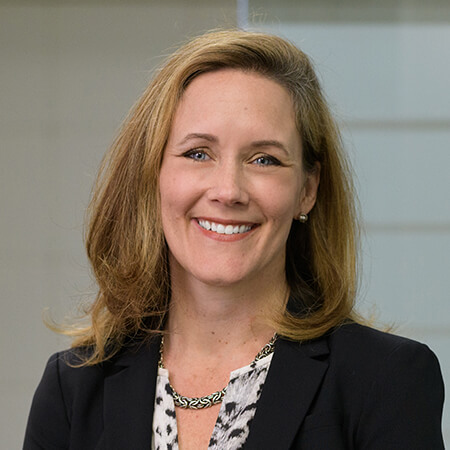Family governance is not a document you complete once and file away. It is a living system that grows and adapts just as the family

Our Post-Pandemic Life
July 20, 2020
At some point in the not-too-distant future—whether through herd immunity, treatment, vaccine or a disease-state mutation—the health-related threat of the coronavirus will begin to fade away. While the exact timing of that seminal moment remains anybody’s guess, there is little doubt that post-pandemic life is going to look very different. Understanding just how the world is likely to evolve and separating what has permanently changed from what has only been temporarily disrupted is critical not only for investment decision-making, but in helping frame just how we will collectively live in the aftermath of the pandemic.
While the stock market has recently found plenty to cheer about, it is clear that not since perhaps the invention of the automobile has there been a more divergent economic outcome between the corporate “haves” and “have nots”. By some estimates, the majority of the market capitalization of the S&P 500 are economic beneficiaries of this new environment, but for the remaining minority, the consequences are quite dire and perhaps insurmountable. In between these two extremes, book-ended by mostly technology-related companies on one side and the travel and leisure industry on the other, resides the myriad of small businesses that must adapt to a significantly different operating environment as well as changed consumer spending patterns going forward.
History teaches us that event-driven shocks like the one we are experiencing tend to be brutal in the moment but have the one silver lining of a faster than typical recovery as investors and society adjust to the “new normal” that subsequently unfolds. This interim period of so-called “creative destruction” in the way we live, while extraordinarily painful for those most impacted, eventually reshapes almost everything, from the way we travel and work, to how we interact economically and socially, to even how we balance our civil liberties with the overall safety of the larger society and its most vulnerable.
The biggest paradigm shift this time around will likely be the significant decentralization of our society. Companies have discovered that having employees work at home as many days as possible reduces their costs, improves employee morale and generally tends to be more productive. As a result, central business districts will likely dissipate, and a reverse urbanization will take hold as the “virtualization of everything” from banking to education to telemedicine will become commonplace. Meanwhile, urban commercial real estate, air travel, cruise ships, movie theaters, stadium events, mass transit, restaurants and many other industries that require economic density will have to adapt or restructure in the years ahead. There is little doubt that undercapitalized businesses as well as many small colleges and charitable organizations will have to merge to remain financially viable or otherwise close.
For those fortunate enough to work in the knowledge-based economy, they will experience a work-life flexibility they thought their children might experience. But for many, it will take time to repair the emotional, financial and social damage from the pandemic. In the meantime, society will work towards its new normal, business models will emerge that are financially viable in this new environment, and each of our life stories will forever be delineated by our pre- and post-pandemic existence. While that’s a troubling reality, this moment also marks an opportunity to make ourselves safer, healthier and maybe even happier by breaking with our established and often outdated ways of living to create a better way forward. And that, during this difficult time, is an encouraging thought.
Articles and Commentary
Information provided in written articles are for informational purposes only and should not be considered investment advice. There is a risk of loss from investments in securities, including the risk of loss of principal. The information contained herein reflects Sand Hill Global Advisors' (“SHGA”) views as of the date of publication. Such views are subject to change at any time without notice due to changes in market or economic conditions and may not necessarily come to pass. SHGA does not provide tax or legal advice. To the extent that any material herein concerns tax or legal matters, such information is not intended to be solely relied upon nor used for the purpose of making tax and/or legal decisions without first seeking independent advice from a tax and/or legal professional. SHGA has obtained the information provided herein from various third party sources believed to be reliable but such information is not guaranteed. Certain links in this site connect to other websites maintained by third parties over whom SHGA has no control. SHGA makes no representations as to the accuracy or any other aspect of information contained in other Web Sites. Any forward looking statements or forecasts are based on assumptions and actual results are expected to vary from any such statements or forecasts. No reliance should be placed on any such statements or forecasts when making any investment decision. SHGA is not responsible for the consequences of any decisions or actions taken as a result of information provided in this presentation and does not warrant or guarantee the accuracy or completeness of this information. No part of this material may be (i) copied, photocopied, or duplicated in any form, by any means, or (ii) redistributed without the prior written consent of SHGA.
Video Presentations
All video presentations discuss certain investment products and/or securities and are being provided for informational purposes only, and should not be considered, and is not, investment, financial planning, tax or legal advice; nor is it a recommendation to buy or sell any securities. Investing in securities involves varying degrees of risk, and there can be no assurance that any specific investment will be profitable or suitable for a particular client’s financial situation or risk tolerance. Past performance is not a guarantee of future returns. Individual performance results will vary. The opinions expressed in the video reflect Sand Hill Global Advisor’s (“SHGA”) or Brenda Vingiello’s (as applicable) views as of the date of the video. Such views are subject to change at any point without notice. Any comments, opinions, or recommendations made by any host or other guest not affiliated with SHGA in this video do not necessarily reflect the views of SHGA, and non-SHGA persons appearing in this video do not fall under the supervisory purview of SHGA. You should not treat any opinion expressed by SHGA or Ms. Vingiello as a specific inducement to make a particular investment or follow a particular strategy, but only as an expression of general opinion. Nothing presented herein is or is intended to constitute investment advice, and no investment decision should be made based solely on any information provided on this video. There is a risk of loss from an investment in securities, including the risk of loss of principal. Neither SHGA nor Ms. Vingiello guarantees any specific outcome or profit. Any forward-looking statements or forecasts contained in the video are based on assumptions and actual results may vary from any such statements or forecasts. SHGA or one of its employees may have a position in the securities discussed and may purchase or sell such securities from time to time. Some of the information in this video has been obtained from third party sources. While SHGA believes such third-party information is reliable, SHGA does not guarantee its accuracy, timeliness or completeness. SHGA encourages you to consult with a professional financial advisor prior to making any investment decision.
Other Posts By This Author
- – A New Year’s Toast to the Silicon Valley Entrepreneur
- – How I Learned to Love the Bot
- – Thank You for Your Partnership
- – The Coming Deglobalization
Related Posts







